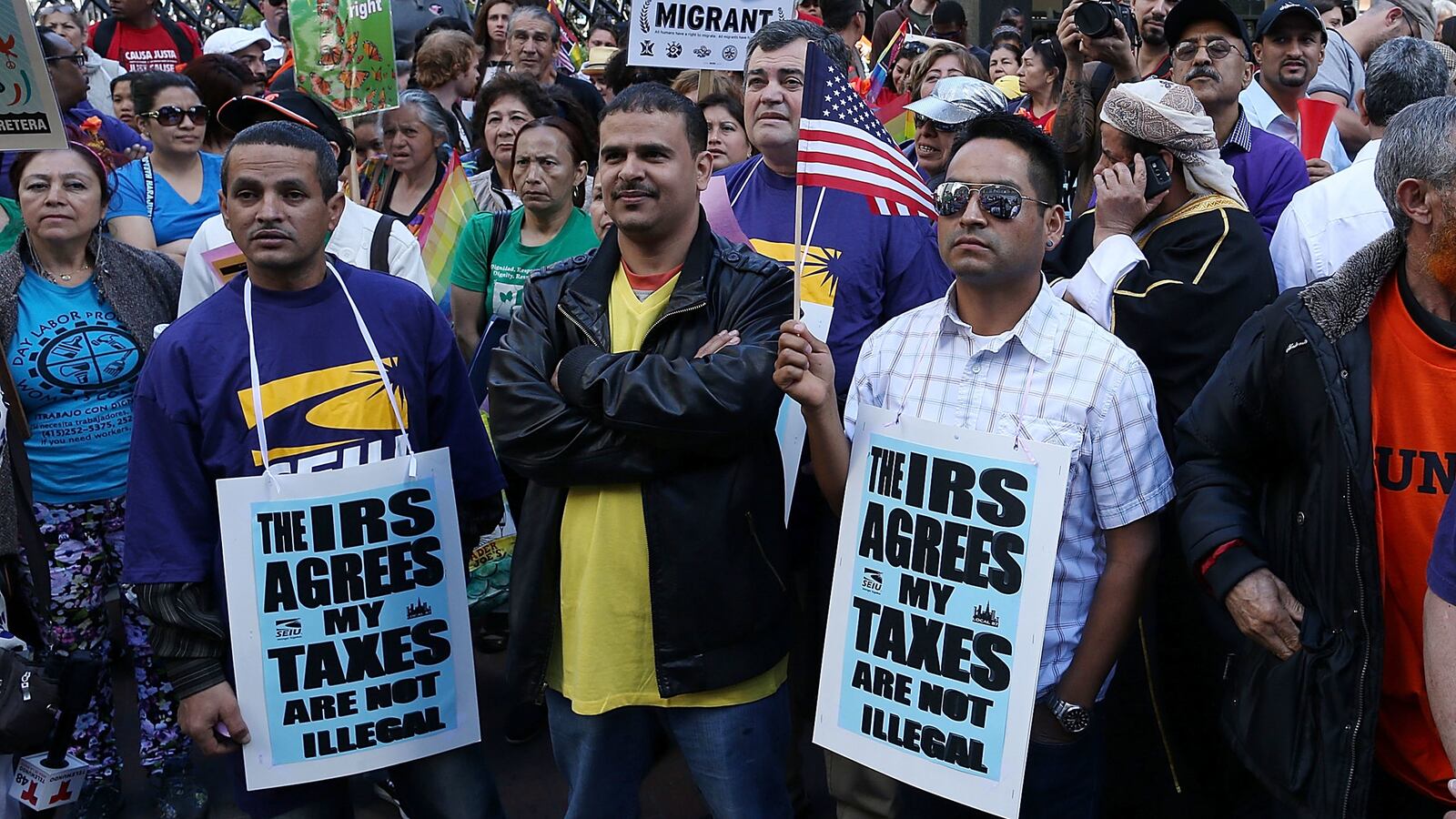Give me your tired, your poor. Your productive, hardworking taxpayers.
That’s not quite how the lines from the Emma Lazarus poem on the Statue of Liberty go. But it’s an accurate assessment of the economic impact of immigration.

Anti-immigrant politicians frequently cite the prospective high cost of immigrants—they require social services, get benefits, have children who need to be educated—as a reason to maintain the status quo or to boost restrictions.
Hoping to garner a data-backed argument for his anti-reform case, Sen. Jeff Sessions (R–Alabama) asked the Congressional Budget Office to score the budgetary and economic effect of the immigration-reform legislation produced by the Senate’s Gang of Eight. On Tuesday, the CBO issued its reports. And they don’t provide much ammunition for the anti-immigration case. The report on the budgetary impact can be seen here, and the report on the broader impact can be seen here.
Essentially, the two reports reach the same conclusion. If we reform the immigration system so that more of those who are currently without legal documents become naturalized, and so that more legal immigrants come in the future, the CBO concludes, the U.S. will have more working-age people. That translates into more people working, starting businesses, and consuming—and paying taxes.
Here’s how the CBO breaks it down. Over the 2014–2023 budget window, CBO says that the proposed changes would lead to additional spending of $262 billion—largely from an “increase in refundable tax credits stemming from the larger U.S. population under the bill and in spending on health-care programs”—especially for Medicaid. Yes, as many conservatives fear, many of the new Americans would be eligible for, and take advantage of, social-welfare benefits. But federal revenue would also rise, by $459 billion, largely due to higher income and payroll taxes. Why? CBO reasons that more people will be working (about 6 million more), and that more people will be working on the books. Put the somewhat higher costs and the significantly higher taxes together, and you get a reduction in the deficit of $197 billion over the 10-year 2014–2023 period. That’s not much—less than $20 billion a year. But it hammers home a truth about immigration that has held since the first boats left England in the 1600s: the people who come here are disproportionately younger and they come here to work.
As for the broader economic impact, CBO says enlarging the pool of Americans—and hence the pool of working Americans—will make the economy larger. Taking into account all the effects of the law, U.S. gross domestic product in 2023 would be 3.3 percent higher in 2023 than if the law isn’t passed. On the other hand, immigrants tend to have lower skills and are more willing to accept lower wages than native-born workers. And given that, CBO estimates “average wages for the entire labor force would be 0.1 percent lower in 2023” than if the legislation were not to be passed.
Now, these projections should be taken with several grains of salt. Long-term projections made by budgetary organizations like the CBO and the Office of Management and Budget have been known to be off—frequently by orders of magnitude. That’s because they don’t account for shocks to the economy, or for big changes in policy that Washington might make in coming years. Back in 2000, both outfits projected huge budget surpluses as far as the eye could see. They didn’t account for the recession, the Bush tax cuts, the wars in Afghanistan and Iraq, and the Medicare prescription-drug benefit. Just last year, OMB and CBO projected a deficit for the current fiscal year of well over $800 billion. Thanks to higher-than-expected growth, tax increases, and the sequester, it’s going to be more like $650 billion.
But it’s hard to argue with the basic reasoning. If the U.S. reforms its immigration system along the lines the Senate's Gang of Eight is suggesting, come 2023 there will be most likely be more people working and paying taxes. That’s kind of the point.





